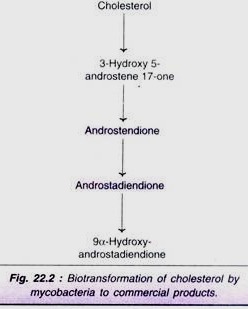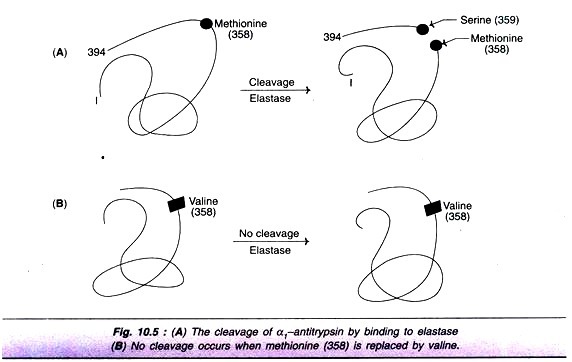ADVERTISEMENTS:
In this article we will discuss about:- 1. Introduction to AICRP-VC 2. Mandate (AICRP-VC) 3. Agro-Climatic Zones under All India Coordinated Vegetable Improvement Project 4. Centers (AICRP-VC) 5. Achievements 6. Varieties and Hybrids of Vegetable Crops Developed.
Introduction to AICRP-VC:
All India Coordinated Research Project (A1CRP) on vegetable crops (VC) was started during the IVth five-year plan in 1970-71, to provide a national grid for multi-location testing of the vegetable technologies developed by various research institutes and state agricultural universities.
The headquarter of the project was at the Division of Vegetable Crops, Indian Agricultural Research Institute (IARI), New Delhi and the Project Coordinator (Vegetable Crops) joined the project in July 1971. During 1986, level of the project was elevated to the Project Directorate.
ADVERTISEMENTS:
Further, in a significant development during 1992, headquarter of the directorate was shifted from IARI, New Delhi to the present day Indian Institute of Vegetable Research (IIVR) at Varanasi. In eleventh five-year plan the NSP (Vegetables) was merged with AICRP (VC).
Presently the project has 29 centres located in different agro-climatic zones of the country. Besides these, about 30 centres involving central institutes, state agricultural and traditional universities and a few other public and private research organizations are participating in the cooperative research programme of the project on voluntary basis.
Mandate (AICRP-VC):
1. To collect, evaluate and conserve the vegetable biodiversity existing in different agro- climatic zones of the country.
2. To develop improved varieties and hybrids resistance to biotic and abiotic stresses through multi-locational testing of mandate vegetable crops.
ADVERTISEMENTS:
3. To develop appropriate production technology for selected vegetable crops.
4. To develop and standardize appropriate management technology for major diseases and insect pests.
5. To standardize the seed production technology of mandate vegetable crops.
6. To undertake innovative basic, strategic and applied research for developing technology to enhance productivity of vegetable crops.
7. To provide scientific leadership in coordinated network research for solving location specific problems of production and to monitor breeder seed production of released/ notified varieties.
8. To act as a national repository of scientific information relevant to vegetable crops and as a center for training for upgradation of scientific manpower in vegetable crops.
9. To disseminate the vegetable production technology to the farmers and to provide consultancy in vegetable research and development.
10. To collaborate with relevant National and International Agencies for achieving the above mandate.
Agro-Cimatic Zones under All India Coordinated Vegetable Improvement Project:
There are 8 agro-climatic zones under all India coordinated vegetable improvement project as shown in Figure 2.1. The conduct of coordinated trials in specific agro-climatic zones facilitates identification of technologies specifically suited to a particular zone.
ADVERTISEMENTS:
Details about 8 zones are as follows:
Zone-I:
Humid West Himalayan Region (Jammu and Kashmir, Himachal Pradesh, Uttarakhand)
Zone-II:
ADVERTISEMENTS:
Humid Bengal-Assam Basin (West Bengal and Assam)
Zone-III:
Humid Eastern Himalayan and Bay Island (Sikkim, Meghalaya, Manipur, Nagaland, Mizoram, Tripura, Arunachal Pradesh and Andaman & Nicobar Islands)
Zone-IV:
ADVERTISEMENTS:
Sub-humid Sutlej-Ganga Alluvial Plains (Punjab, UP, Bihar, Jharkhand)
Zone-V:
Sub-humid to Humid Eastern and South Eastern Uplands (Chhattisgarh, Orissa and Andhra Pradesh)
Zone-VI:
ADVERTISEMENTS:
Arid Western Plain (Rajasthan, Gujarat, Haryana, Delhi)
Zone-VII:
Semi-Arid Lava Plateaus and Central Highland (Madhya Pradesh, Maharashtra)
Zone-VIII:
Humid to Semi-Arid Western Ghats and Karnataka Plateaus (Karnataka, Tamil Nadu, Kerala)
Centers (AICRP-VC):
Presently AICRP-VC has a network of 29 centers (SAUs and ICAR Institutes) fully funded by ICAR and 23 voluntary centers as given in Table 2.2.
Achievements of AICRP-VC:
The AICRP (VC) has made strides in research and development of vegetables. During 39 years, the project has developed 407 varieties in 22 vegetables crops, which have been identified for cultivation in different climatic zones of India.
Among these, 246 are high yielding open-pollinated cultivars, 107 are hybrids and 43 are cultivars resistant to diseases. The summary of varieties developed by various State Agricultural Universities and ICAR institutes is given on (Table 2.3).
However, it may be mentioned here that out of 407 cultivars released under AICRP- Vegetable Crops, a smaller number only has reached to the farmers/consumers due to products not meeting the market requirements and/or non-availability of seeds.
This lacunae has further widened due to strong presence of private sector seed companies which are playing a very significant role in terms of delivering seed of desired products at consumers’ doors due to their vast network of production and marketing.
Varieties and Hybrids of Vegetable Crops Developed under AICRP-VC:
ADVERTISEMENTS:
Crop wise Summary is as follows:
Open Pollinated Varieties:
Hybrids:
Disease Resistant Varieties:







